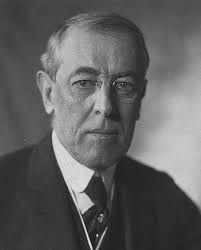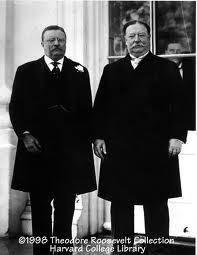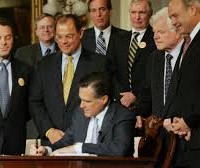- Two Thanksgiving Thoughts for the ACAPosted 11 years ago
- Shop til you Drop at the Healthcare Marketplace Part 2: Frustration!Posted 11 years ago
- An Early Casualty in the Affordable Care FightPosted 11 years ago
- Some Good News for a ChangePosted 11 years ago
Another Presidential Cliffhanger

This closely contested Presidential election involving a Democratic incumbent is not without its precedent. Few alive today who lived through it will have much memory of the events, but it does bear a moment’s retelling.
In 1916, White House occupant Woodrow Wilson, the former president of Princeton University and Governor of New Jersey, worried in the final weeks of the campaign that he was about to lose. He even sketched out a plan to allow his opponent to take the office early by appointing him Secretary of State, then next in line to succeed after the Vice-President, just after the vote was certified. Then he and Vice-President Thomas Marshall would both resign and the winner would become commander-in-chief before the Inauguration, which was then in late March.
The beneficiary of all this generosity was Republican candidate Charles Evans Hughes, recent Associate Supreme Court Justice, successful Wall Street lawyer and former two-term governor of New York. The Republicans had splintered four years earlier when Theodore Roosevelt chose to run against his hand-picked successor William Howard Taft. TR, running independently on the Bull Moose ticket, split the Republican vote with Taft and put Wilson into the White House. Now they were united behind Hughes whom both Taft and Roosevelt actively supported.
Hughes, a distinguished figure called “The Bearded Iceberg” by Roosevelt behind his back, ran a high-minded campaign that did not avoid its share of gaffes and kerfluffles. The judge could seem remote, and gave speeches which numbed the listener. Wilson, known as an articulate intellectual, was no Bill Clinton either. He ran on keeping the US out of the conflict in Europe, hoping he could do all his campaigning from the back porch.
Hughes and his handlers made a decision to embrace the GOP Conservatives who had lots of money, and ended up offending the Progressives who had once surrounded Roosevelt. Most grievous was an unintentional snub of California Governor Hiram Johnson, Roosevelt’s running mate in 1912 now on the ballot running for the Senate. Wilson had his own intra-party headaches, though he knew he was still in the contest in the final days, telling his brother “Mr. Hughes is making very little headway, because he has done so many stupid and insincere things.”
The ‘swing states’ of the time were won by razor-thin margins. More went to Wilson than predicted. The counting went on way past Election Day. In the end, Hughes narrowly lost California and the 13 electoral votes that would have made him president. Wilson won with slightly less than 50% of the popular vote, 277 to 254 in the Electoral College.
The night before the California results were certified, someone phoned Hughes’s suite at the Astor in New York City to speak to the candidate. “I’m sorry,” his valet told the caller, “The President has retired for the night.” “Fine,” came the reply. “Oh, when he wakes in the morning, let him know he is no longer President.”
Tom Godfrey __________________________________________________________________________________
N.B. Hughes would return to the Supreme Court, following William Howard Taft as Chief Justice and tangle with Roosevelt’s distant cousin Franklin when he attempted to pack the court.
(Woodrow Wilson by John M Cooper, Knopf 2009 and The Glorious Burden by Stephan Lorant, Harper and Row 1968 were consulted in the preparation of this piece)
Tom Godfrey








